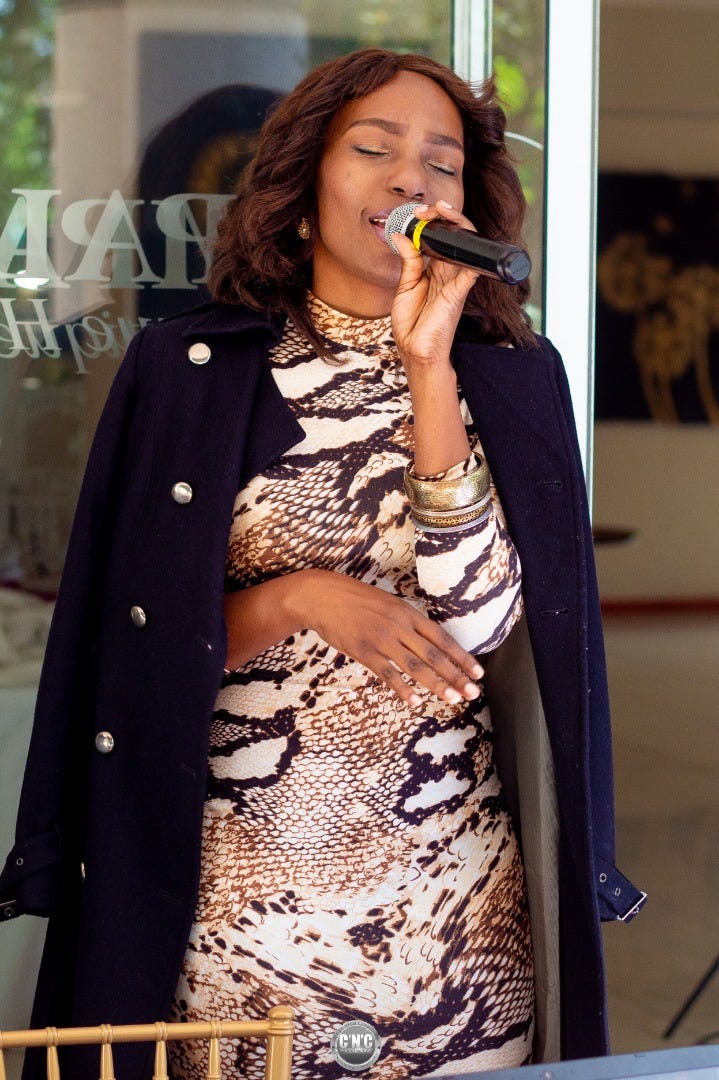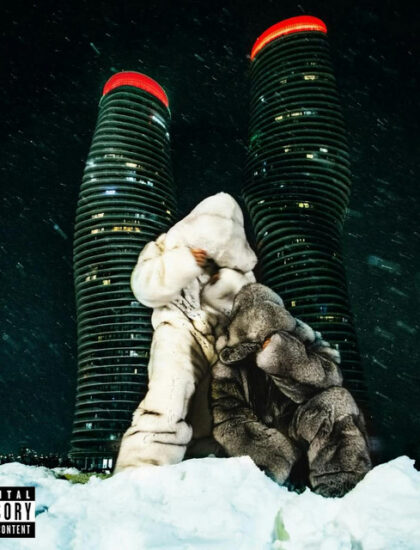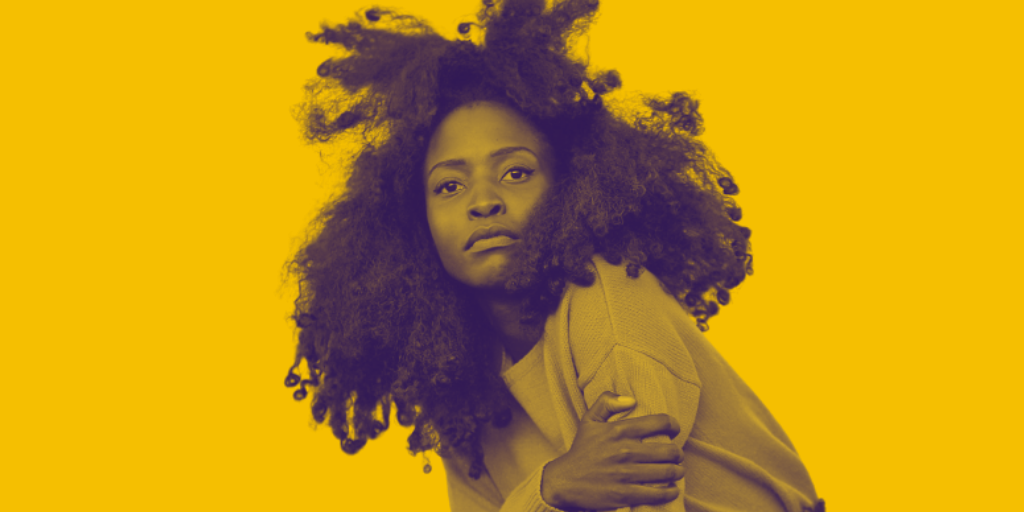For my roses to the creators who continue doing the most on behalf of their sisters in the field of creatives, I focused particularly on the psychology behind their processes. Rudo Amor, being the soulful singer she is, didn’t shy away from the curious questions I had for her.
Instead, she went above and beyond answering the most and sharing heartfelt stories on her creative journey.
The stunning model took her first steps in entertainment early on at age 12, enrolling herself into what must have been a gruelling six-year training course to find her voice as a musician. One word that stuck out to me was how she referred to herself as a classically trained musician, which prompted the question regarding her training and its influence on what she creates.
I asked her how much of her creative ability she thinks is innate and whether her creativity is a skill that she has developed.
“My musical training helped me to perform and continually training my vocals. Writing music definitely is a gift, I didn’t know how to write music and it’s only when I prayed and asked God that He helped me and it’s been amazing ‘cos I get to write my own music. Nothing beats translating emotion into music, it’s a beautiful experience. But perfecting writing takes training, trial and error, it’s a continual journey,” she told me.
Looking at the path she trailblazed for herself into corporate event performance gigs from being a backup singer and stealing the show at choirs, you can only appreciate the determination she possesses. She actively began modelling and performance work at age 18, recording her first single in 2012 and collaborated with several artists and companies in creating beautiful moments of magic.
“My sound has definitely changed, I’ve become more confident and self assured in myself and understanding my voice better. I started as a backup singer for Takesure Zamar then I released my first single that a fusion of soft rock, soul and hip hop. Then I went into deep house music although my heart was more inclined to soul music. It’s only recently that I found a producer [B-Kid] who can produce the type of soul music I do, hence my latest song, Choose.”

With growth, comes the burden (or rather responsibility) of wanting to impart to others what one would have learnt from their journey. That’s fast becoming the case with Rudo. Her creativity has changed stylistically over the years as she matured into different roles, one of which is mentoring the next generation of femme fatales in music.
When she mentioned her work at SisNextGen and the work it entails, I just had to ask for her two cents on the girl child movement from all those years ago. Had it paid it forward for her sisters in the creative economy? Had creative representation for women been achieved to a degree of satisfaction for her personally speaking?
“There is so much that still needs to be established in the Zimbabwean creative system. There is a lack of information regarding simple information like how does one become an artist in Zim. If you Google, most resources are based on outside markets and I do feel we need a database of information so that anyone from Zim can have free access. Also we need more structures to assist creatives in development, access to funding, and creative copyrights enforced. In recent times, I have seen more organizations stepping up to change things like conducting online workshops, such as the initiative I help run called SisNextGen,” she said.
The Sisterhood Music Training Project aims to train over sixty young females artists in music recording and production, audio engineering, live performance and instruments, music management, DJing, podcast production and audio production as well as create a supportive community for women in music, providing the tools, knowledge, and support to further manage their music business and opportunities. Rudo had this to say about it:
“The girl child movement was mainly focused on other areas in the industry and only of late has the creative industry been taken seriously as an industry that can create a respectable career for women. For years, nothing was being done to equip the girl child in music business and production, for instance. So, we started creating trainings as SisNxtGen to equip and enable young women to take up more roles in the creative space. We have conducted trainings in music business, music recording and production, DJing, and currently we are conducting trainings in podcasting, sound engineering and photography.”
SisGenNext have taken up the unique responsibility of amplifying the voices of Zimbabwean women to a global audience. Trends say that this audience is keen on hearing more African music, despite there being vast differences in both music styles and market economies across the continent’s 54 countries. There are some features that are common across the vast concrete jungle that don’t necessarily paint an endearing picture. Fact remains that Africa is plagued by a combination of weak music distribution networks, relatively unregulated digital markets, a legacy of unlicensed music distribution aka piracy, tensions between cultural rights and copyright, and widespread disruptive effects of digital innovations.
Spotify, Audiomack Universal Music Group and Def Jam have decided to root in Africa, as they see the commercial fruits to be harvested from a continent of starving talented artists. In order to bridge the industry gap between Zimbabwe and South Africa alone, before even getting to fixing the monetization gap between men and women in local creative fields, Rudo and her team have a lot of back-breaking work to look forward to. Hopefully, it won’t be thankless work.
I asked Rudo for her secret self-care routine that she uses to balance a life of fame in the world of entertainment and the simplicity of it hit home.
“I love to take walks to clear my head and heart. I’ll usually walk for an hour while listening to music. I also enjoy baking; it’s therapeutic for me creating delicious desserts. I also turn to the Bible through devotionals focused on whatever I’m feeling that day and listening to worship music. I also keep a journal where I jot down what I’m thinking and feeling but sometimes I’m not consistent on this. It’s easy to lose yourself in the entertainment world and feel pressured to produce content,’ said Rudo.

Editorial: This month, #enthuse, through our #SheCreatesMarch feature series, celebrates the work of thirty-one Zimbabwean women creatives, the contributions and achievements they have made throughout history, culture, and society. The idea is to elevate visibility for commercial projects and commissions. Discover the work of avant-garde creatives who embody the spirit of the month by uplifting and empowering women. Representing diverse backgrounds and disciplines, these women share one thing in common: their dedication to supporting women and sharing their stories through art and creativity. We are thrilled to share their work. And this month is about them. #ChooseToChallenge
























